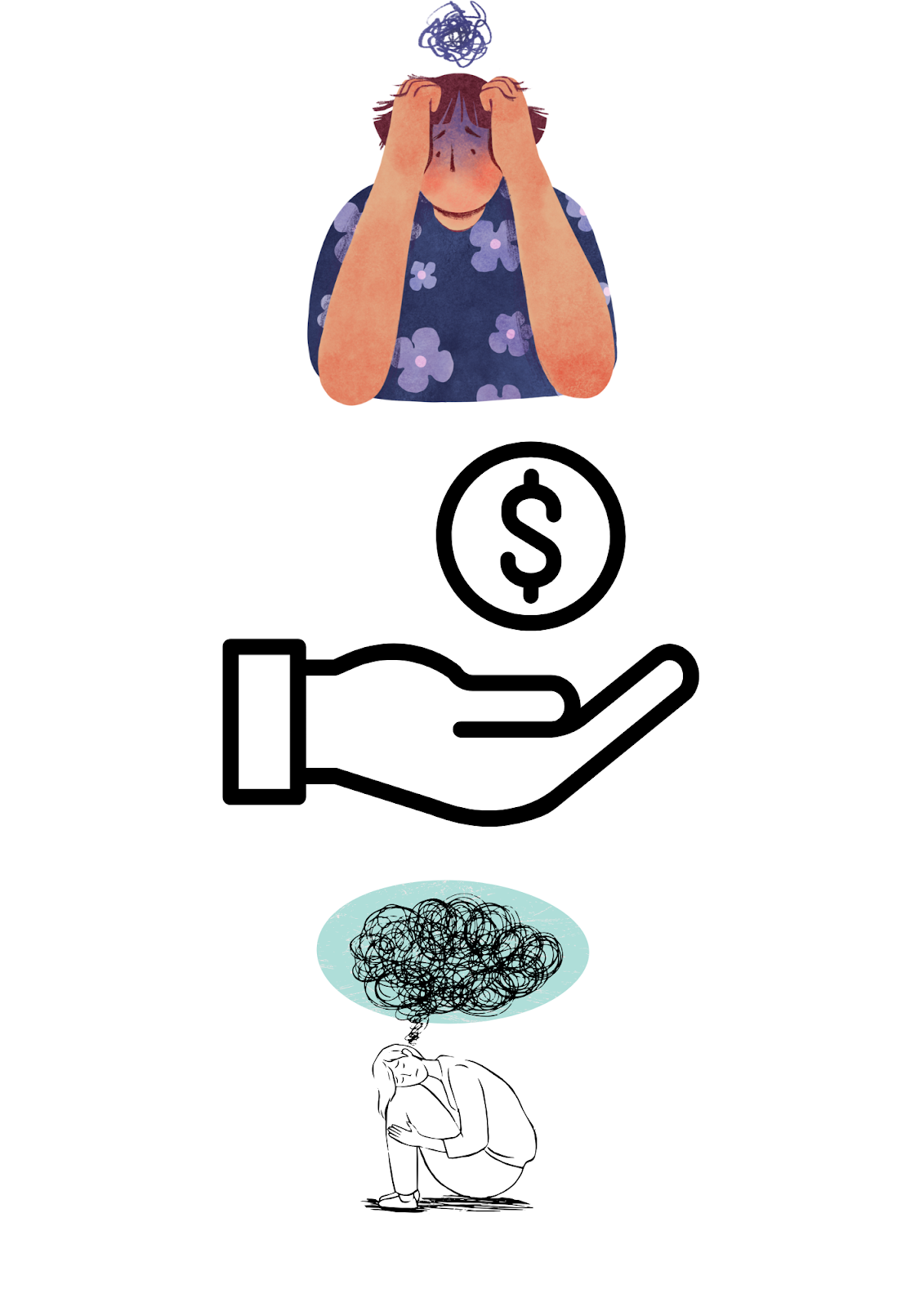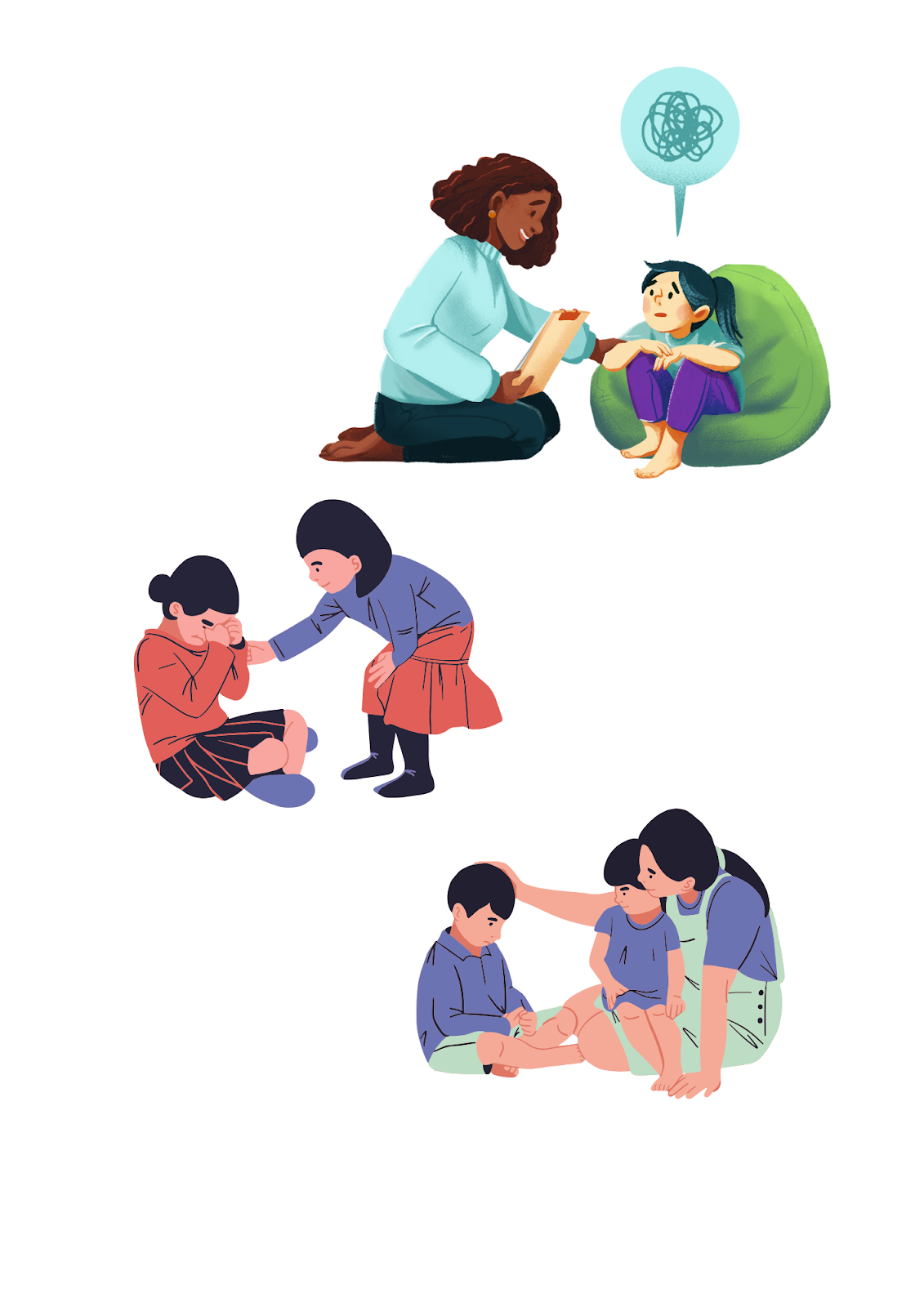YOUR MIND OR YOUR MONEY? WHAT WEIGHS MORE?: THE LINK BETWEEN MENTAL HEALTH AND SOCIOECONOMIC STATUS
More
money, more problems, or is it having no money equals more problems? Ironic
isn’t it?
Money
can buy happiness, as many people say, while others say, money isn’t everything.
It
is often assumed that for those living with large amounts of money, have no
problems in life, while those living with small amounts of money have more
problems in life and are generally problematic people to deal with.
Some
of these troubles and issues that rise up tend to creep up in our social
environments and somewhat define what certain “problems” or “stresses” are
acceptable in which social classes.
A good example can be the effect of the COVID-19 on the socioeconomic status of several people who lost jobs, had to change occupations and even regions they called home. These changes significantly cause various challenging thoughts and emotions which result in varied behavior.
However,
do we have to be all rich to feel relieved?
It
can be hard to say when not everyone earns the same amount of income and live
the similar lifestyles. Therefore, what ways does our socioeconomic status
affect our mental health?
Impact
of socioeconomic status on mental health
Mental
health is present in all of us, just like our physical health. In our physical
health, we could be vulnerable to bacteria that makes us ill or an injury that
happens when we fall badly down the stairs. Our mental health is vulnerable to
facing stress which affects how we think and behave, or challenging situations
such as facing loss, which impacts our emotions.
However,
how we experience our mental health varies on factors such as our environment
and genetics. One of the factors that are able to affect or has a link to the
quality of our mental health involves our socioeconomic status or social class.
Main
areas socioeconomic status affects mental health
Socioeconomic
status refers to the level in which someone fits into society, which includes and
is measured by their income, education level and occupation. Various
populations live under varying degrees of socioeconomic status.
Some
of these varying degrees present different qualities of life for individuals.
The effects or impact of the degree of socioeconomic status, may include
financial strain, access to health care and poverty and adverse living
conditions. However, it may appear differently depending on the people or
groups such as:
Mental
health of individuals: With varying degrees of income,
education and occupation, this can affect an individual’s day to day life,
which include being able to cover their living costs. The level of education is
closely linked with the type of occupation individuals can acquire, which
affects their level of income.
The
lack of the ability to ensure living costs are met can lead to significant
stress which can easily lead to depression, anxiety or substance abuse in
individuals. Severe cases can lead to need for hospitalization or emergency
care.
A
higher socioeconomic status may suppose a higher quality of life where basic
needs are met and other resources to afford other needs. The ability to acquire
mental healthcare services can therefore come easily as well as maintain a
higher quality of life consistently. On the other hand, a lower socioeconomic
status may suggest a lack of ability to access mental healthcare services due
to prioritization of basic needs and inability to afford mental healthcare
consistently.
However,
it is to be understood that, not only can the varying degrees of socioeconomic
status in terms of incomes affect the quality of life and bring about mental
health conditions. It can also worsen already existing conditions in
individuals living with mental disorders, which can lead to the severity of
symptoms by lacking the ability to acquire adequate care for patients living
with mental disorders.
Mental
health within families: Apart from having the ability to
access to necessities for day to day living, in regards to their socioeconomic
status, families face a variety of issues in terms of socioeconomic impact on
their mental health.
The
lack of necessities can cause improper education or presence in schools for
children, which leads people at a young age lacking skills to gain income as
well as being vulnerable to unethical ways of earning money and manipulation.
This could lead to development of trauma which hinders experiencing proper
psychological growth and have to contend with harsh living conditions at a
young age.
The
imbalance in lifestyle due to a low socioeconomic status may lead to aspects of
domestic violence between parents out of the stress, depression or anxiety
experienced. This could negatively affect the environment in which children are
raised, leading to children running away from home and opening themselves to the
world without caregivers, which makes them vulnerable to possible drug
addiction and physical or sexual assault.
Families
with high socioeconomic status, tend to be able to attend to their needs much
easier and have relatively, stable growth and development patterns, therefore
life stressors are easily manageable, leading to better mental health outcomes.
However, other aspects such as pressure to maintain social status for the
purposes of their image in society, can lead to significant mental health issues.
Role
of social support
As
mentioned, not everyone lives in the same socioeconomic status and therefore
not everyone can have the ability to attend or make sure the quality of life
doesn’t hinder their mental health. At times, we are unable to choose or decide
the socioeconomic status we end up, and likewise, situations of life can make
us shuffle in the various degrees of socioeconomic status. Therefore, being at
either high or low socioeconomic status, can be finite and to ensure people’s
mental health is at its optimum, this is where the role of social support comes
in.
Some
of the ways in which social support aids in helping those unable to provide
themselves a lifestyle or access to ensure proper mental health includes:
Mental
health education and awareness: Through mental health
workshops and seminars in various communities and regions, individuals and
families are empowered by being able to learn more about mental disorders and
being able to manage them. This becomes important as they could be stigmas that
lead to them being socially isolated and misunderstood and therefore lack
adequate care.
Other
programs are also developed to ensure some families are able to attain proper
education which enables them to be more aware on how to create livings for
themselves, and matters closer to mental health. Apart from helping, with
access to education programs, and mental health education, they look to assist
with accessibility to affordable healthcare and resources to help themselves
get adequate mental healthcare.
Conclusion
Mental
health is something that is important for everyone in the world and its maintenance
helps bringing about better quality of lifestyles. However, in a more practical
scenario, not everyone lives the same lifestyle and this can impact the mental
health of individuals.
Depending
on the socioeconomic status of individuals, the access towards resources to
ensure proper mental health can vary where some may need help and others are
able to empower themselves and those around them.
Through
all of this, it is important to ensure that society is properly informed about
mental health and mental disorders, to empower themselves to properly or adequately
with situations they find themselves which regard their mental health and those
of others.
As for you, what ways can we make people not tied to their socioeconomic status in terms of mental health?
References
https://psyclarityhealth.com/how-socioeconomic-status-affects-mental-health/




Comments
Post a Comment